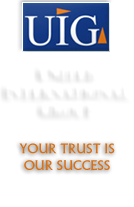Insurance penetration into Pakistan lowest
ISLAMABAD – Currently, the insurance penetration into the country is only 0.7 per cent of the GDP, which is one of the lowest in the world while the insurance density is also a mere $6.5 per capita.
Mian Shahid, CEO Saudi Pak Insurance Company, stated this in an exclusive interview with Dateline Islamabad here Tuesday.
Mian Shahid said the lower density of insurance reflected a tremendous scope for substantial development if right macro-environment was estab¬lished and an appropriate regulatory framework was developed.
He said like many other developing countries, the size of Pakistan’s insurance industry was relatively small in proportion to its Gross Domestic Product (GDP).
Despite its relatively small size, Shahid indicated the sector was supported by strong and transparent accounting and actuarial infrastructure. Similarly, he said the reinsurance requirements for the sector were also very clear and well-defined.
Referring to increased terror incidents in Pakistan, he said such events had made it mandatory for people to take protective measures against such mishaps. “Be it business or household security measures must be taken, like appointing security guards or getting insured,” he added.
“In the current turbulent times, insurance is perhaps the best protect ion that property owners can obtain In protect their assets against this rising peril,” he added.
With mounting demand for terrorism insurance coverage in Pakistan, lie said certain leading insurance companies in the country had been able to enter into arrangements with international reinsures.
“These arrangements enable the insurance companies to provide sufficient capacity to meet the requirements of larger business houses and multinational organizations in Pakistan,” he added.
Although, he said the insurance coverage from the losses of terrorism was still rather expensive as compared In the standard fire and allied perils coverage for property as it must be evaluated in view of the rising frequency of terrorism incidents and widening scope of possible targets.
“I even tempted to say that a I present terrorism insurance coverage is more important than the conventional property insurance covering fire and allied perils,” Shahid.
In the current turbulent times, insurance is perhaps the best protection that property owners can obtain to protect their assets against the rising peril.
He said the Saudi Pak Insurance Com¬pany Limited was one of the few companies in Pakistan offering insurance cover from terrorism losses up to Rs25 million.
He said despite economic recession in the country and reduced purchasing power of consumers, if the B2C selling approach was adopted by the insurance companies and small ticket size products were developed, which met the demand in the retail market, the insurance density and penetration into the country could be increased dramatically, thus providing an impetus to the sagging economy.
About the Saudi Pak Insurance Co. Ltd, he said the company started its operations from April 14, 2005 and since then it had managed to emerge as one of the successful companies of the insurance industry.
“Fortunately to its credit, it is jointly supported by the strong Saudi Pak Group and SilkBank Limited, a consortium of Bank of Muscat, Nomura of Japan, IFC and others,” he added.
About the financial health of Saudi Pak Insurance, he said the company had earned net profit of Rs6.1 million during the second quarter ended in June 30, 2011, showing much better performance as compared to the same period of last year during which it had to face losses of Rs7.4 million.
“The performance of third quarter is expected to be better than the second quarter of 2011,” he added.
He said the developed countries were ahead in respect of insurance, as USA, Japan, United Kingdom, France and Germany collectively held 2/3rd of the whole insurance market of the World. “Above all discussion, clearly show where our insurance industry stands,” he added.
He said if Insurance Association of Pakistan (IAP) and insurance companies look corrective measures, there was no way that our insurance industry would reach a point which was called ‘Destination’.
Published in Dateline Islamabad dated Oct. 5, 2011
Agriculture Insurance can address problem of Food Insecurity
A sound insurance system can strengthen the agriculture sector of country and address the menace of food insecurity in Pakistan, an expert said.
Government as well as private sector should take steps to provide protection to life, health and assets of rural people, said Mian Akram Shahid.

Agriculture insurance can address problem of food
insecurity Production, profit, livestock yields of farmers
should be protected
Farmers could be saved from impact of disease, viruses, drought, flood, insects, natural disasters, weather, rains and other risks, he said while speaking at a forum organised by the Pakistan Economy Watch.
Shahid said that agricultural yields could go up by 25-30 per cent if cultivators try improved methods which are also covered. Similarly, Pakistan can have a better livestock yields if proper steps are taken.
Insurance companies need to be encouraged to offer wide range of schemes including crop yield insurance and crop revenue insurance, he said. Some issued impinging on commercial insurers must be tackled.
There should be a mechanism in place to provide training to companies in the area of agricultural risk management and to equip them to identify opportunities and develop products that help mitigate risks, he demanded
Mian Akram Shahid, who is also President of United International Group, said that there is a need to build the capacity of the institutions by providing the knowledge and skills required to design, price and implement agricultural insurance programmes.
Insurance does not and cannot obliterate risk, it spreads risk, he said adding that agri insurance alone was not enough to solve the problems of growers. It is also important to provide farmers with good agricultural practices and services that allow them to improve productivity.
He advised farmers to try to produce more than one product to avoid dependence on the production and price of one product. Diversification is a simple way to avoid some risks, he said.

